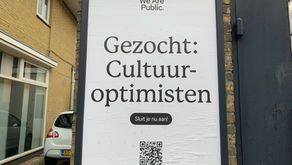LSO Panufnik Composers
- Judith Weir
- Jan 22, 2024
- 2 min read
Updated: Feb 19, 2024

This year I joined the selection jury for the LSO's Panufnik Composers Scheme. It's a big deal for emerging composers, awarding all kinds of access to the orchestra, so it's understandable that over 200 people applied (six places were available.) Each entrant submitted two scores, so that made well over four hundred, mostly very substantial, recent works for six jurors to absorb.
Luckily, Colin Matthews has directed the programme for nearly two decades (assisted by Christian Mason) and he has devised some nifty maths whereby individual jurors spend a week crosschecking a section of the total entries before a decisive meeting of the full panel. The said meeting took all day, starting at an uncomposerly 9.30, and ending only when darkness had fallen over the LSO's beautiful HQ at St Luke's Church (pictured). I can assure anyone who enters this scheme that all the work is read and listened to very seriously and with great care. But of course there are always way too many talented candidates for the number of places, and choosing "the best six" is not an exact science.
I came away with many interesting impressions from this, my first involvement with the Panufnik Scheme. Above all, the incredible professionalism and skill, en masse, of so many composers in their 20s, most of whom have already had quite a few years of specific composer education, often to PhD level. Even with the generally bad situation for music in schools, and the huge fees to find at tertiary level, young composers bravely persist with this most challenging of musical quests.
And leading on from that; the music colleges have by now caught up, and possibly overtaken, orchestra schemes like this one, by performing music by their composition students much more often, and to a higher standard, than they used to. We heard quite a few very good recordings by college orchestras in the course of our judging. This LSO scheme has clearly been influential on composer education, and several other major orchestras (including the Hallé, LPO and Philharmonia) now run similar annual programmes. Which is just as well, because we've recently seen savage funding cuts to many ensembles who always or often play new music in their public concerts (Psappha, London Sinfonietta, Britten Sinfonia).






